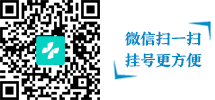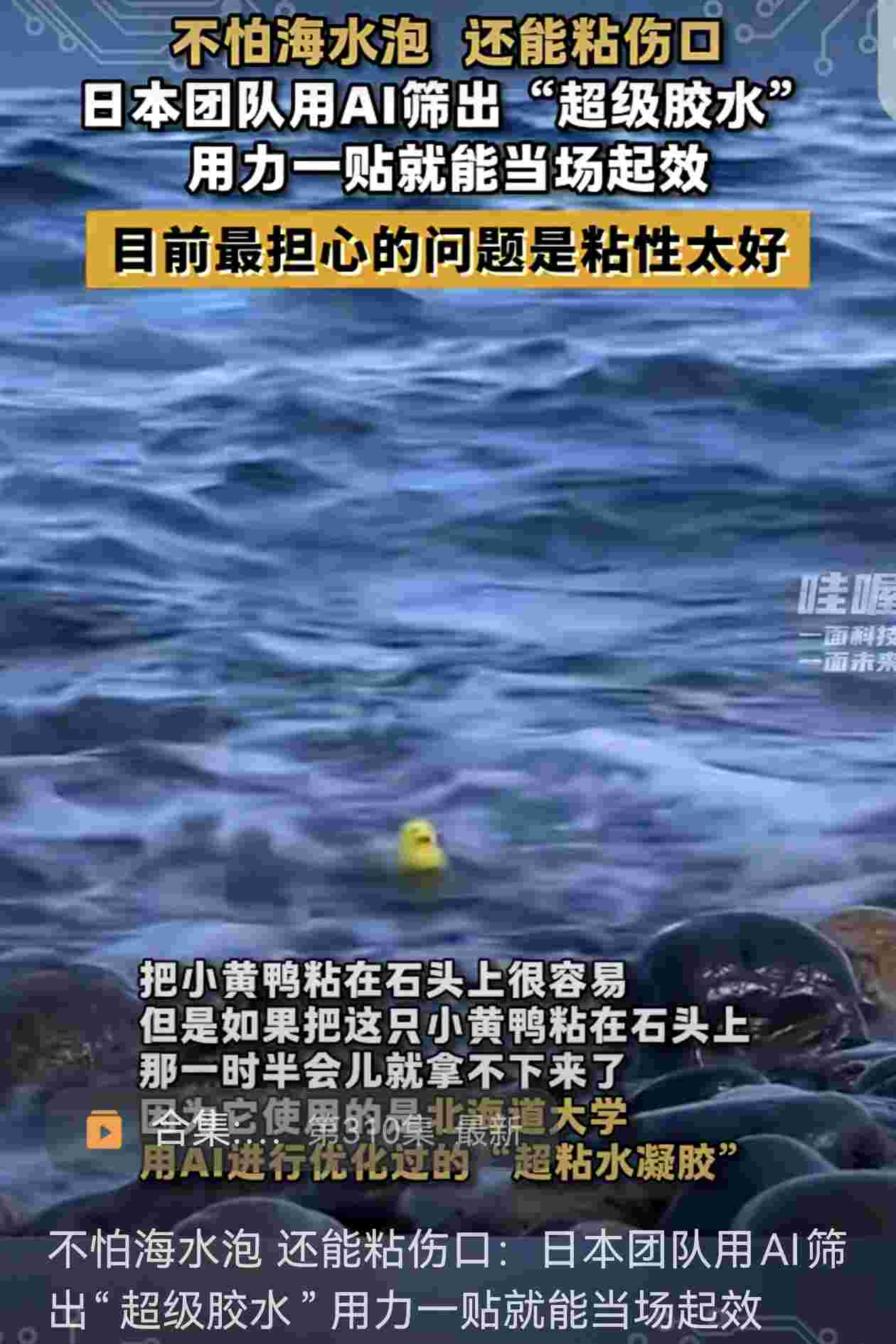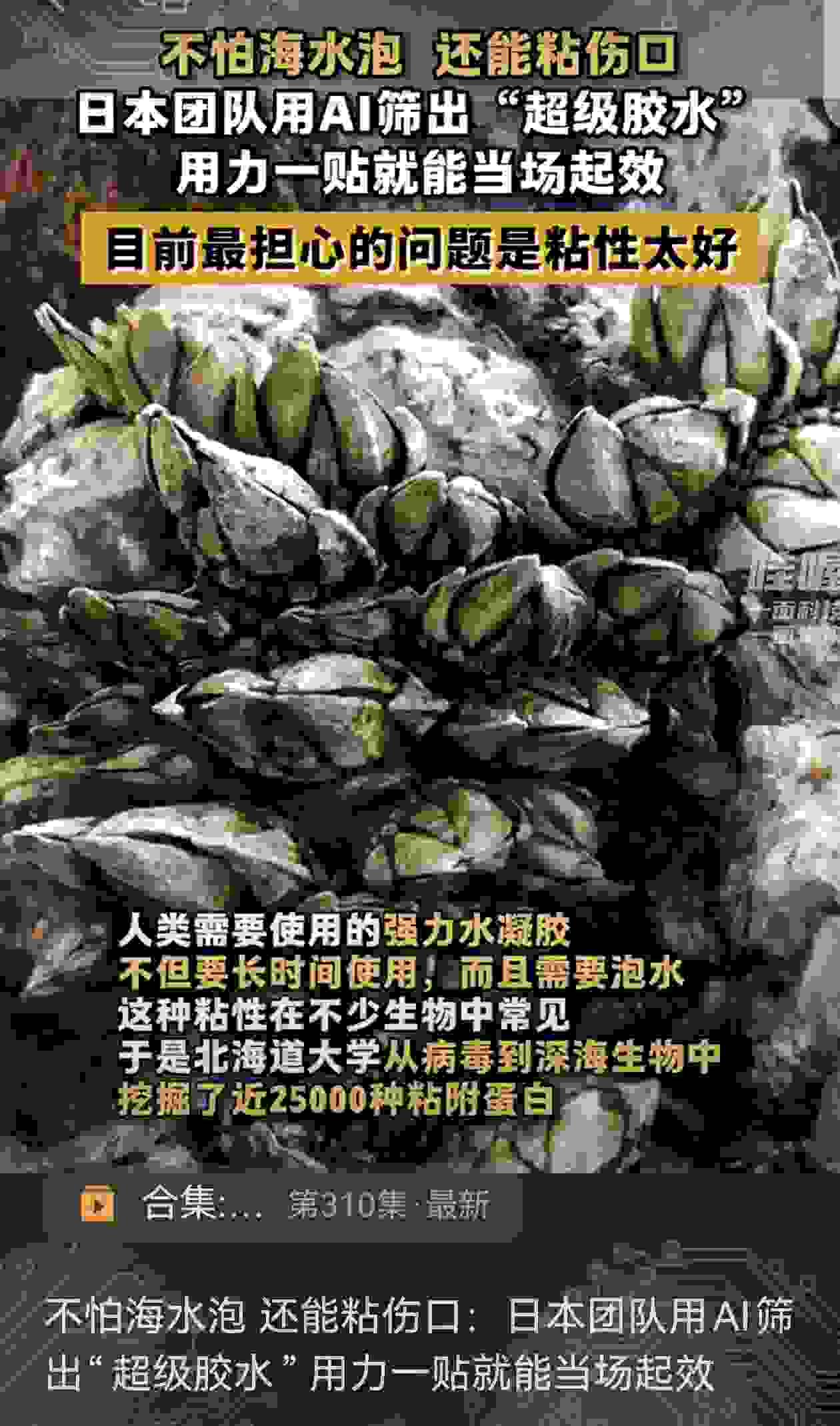

日本北海道大学团队借助人工智能技术,从蛋白质的关键氨基酸序列出发,成功研发出一种“超级胶水”。研究中,团队先解析出可合成180种独特网络结构水凝胶的序列,再通过机器学习算法进一步优化。该水凝胶兼具卓越性能:既能在海水环境中稳定粘贴(如实验中粘住礁石上的小黄鸭),也可用于伤口闭合;邮票大小的凝胶理论上能承重约63公斤,还可反复使用、封堵漏水管道。不过,超强粘性也带来困扰——粘贴后难以分离,成为当前需攻克的关键问题。此成果不仅为医用粘合剂、应急堵漏等领域开拓新方向,更彰显AI在材料研发中的高效潜力。

A research team from Hokkaido University in Japan has developed a “super glue” using AI, starting from key amino acid sequences in proteins. First, they identified sequences that can form 180 hydrogels with unique network structures. Then, machine learning algorithms were used for further optimization. This hydrogel boasts remarkable properties: it stays adhesive even in seawater (e.g., sticking a rubber duck to a rock in experiments), can close wounds, and a stamp - sized piece can theoretically bear a weight of ~63 kg. It is reusable and effective for plugging leaks. However, its ultra - strong stickiness poses a challenge — separation after adhesion is difficult, a key issue to solve. This achievement not only opens new paths for medical adhesives and emergency leak - sealing but also highlights AI’s potential in materials research.